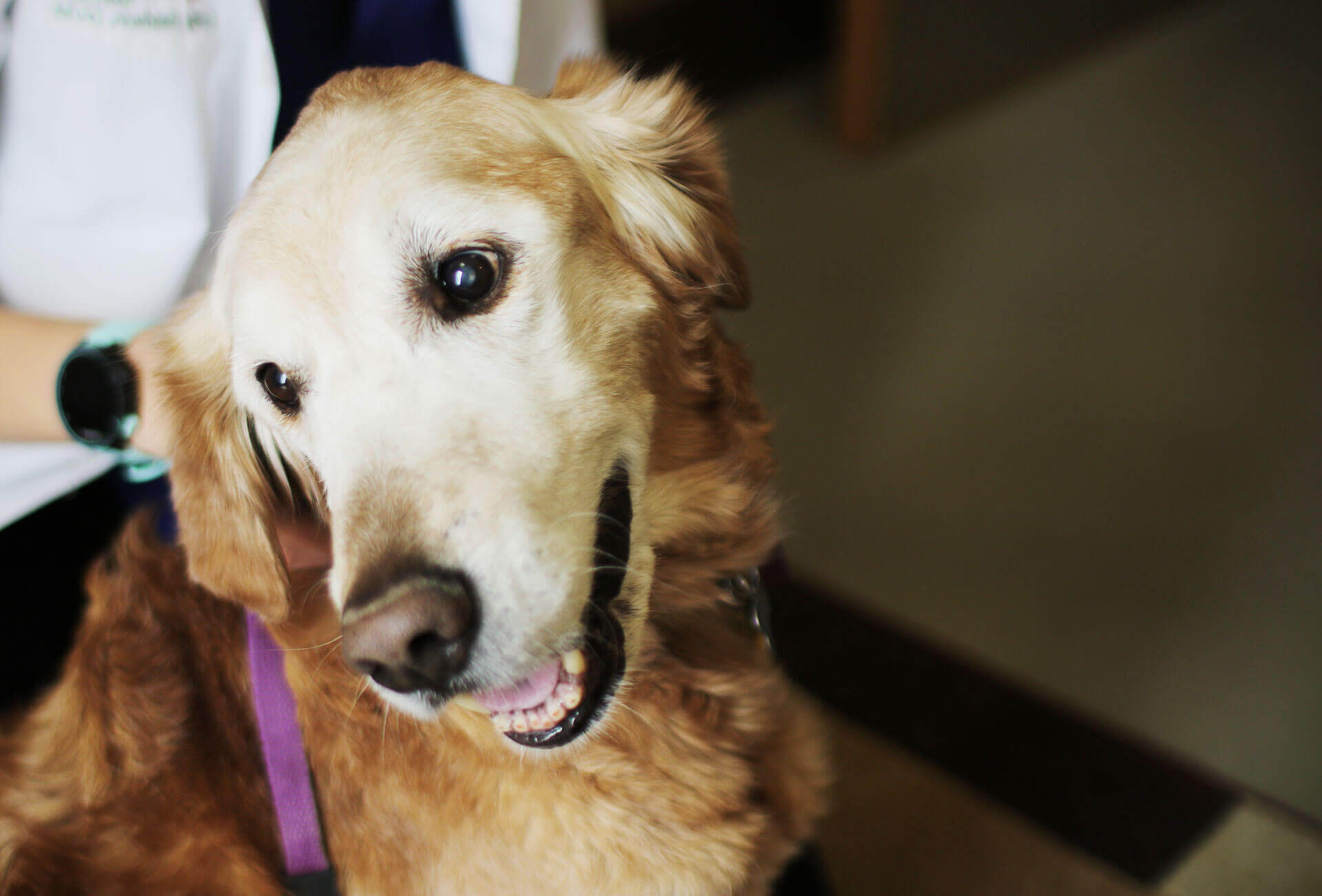Senior Pet Care Services

There’s no way around it…we all age and grow old. As this happens, our health care needs change as well. Unfortunately, our dogs and cats age more rapidly than we do, and they are considered senior after age eight. Giant breed dogs are different. They turn senior after six years of age!
We want your pet living with you long into their senior and geriatric years greeting you at the door for years to come! Thanks to advances in medicine, surgery, oral care, and nutrition, pets are living much longer and healthier lives.
However, just like their human parents, senior pets are at risk of developing diseases such as diabetes, kidney disease, heart disease, high blood pressure, or cancer.
Your older cat or dog may seem healthy; however, trouble could be brewing just beneath the surface and the symptoms can be very subtle. Please don’t wait until your pet is seriously ill.
Symptoms to watch for:
- Weight loss or weight gain
- Vomiting or diarrhea
- Increased thirst or urination / larger litter clumps
- Poor hair coat
- Changes in appetite
- Changes in behavior
Our veterinarians believe an informed client is best equipped to make an educated health care decision. Your role is the caregiver. Our role is to guide you in making the best possible treatment option for your pet.
Our Senior Health Care Program

Physical Exam: An evaluation of all body systems, including the heart, lungs, lymph nodes, teeth, eyes, ears, skin, bones, and joints.
Blood Chemistry: Blood tests to assess function of most organs. Early detection of problems allows for a greater number of treatment options
Complete Blood Count (CBC): An evaluation of the red and white blood cells and platelet parameters. This test can help to detect infection, anemia of chronic disease, and leukemia.
Urinalysis: This test detects the earliest signs of kidney disease and diabetes, as well as infections that can be detected in the urine.
Thyroid Screen: This test detects the earliest signs of kidney disease and diabetes, as well as infections that can be detected in the urine.
Blood Pressure Measurement: High blood pressure can lead to kidney problems, heart disease, and blindness.
